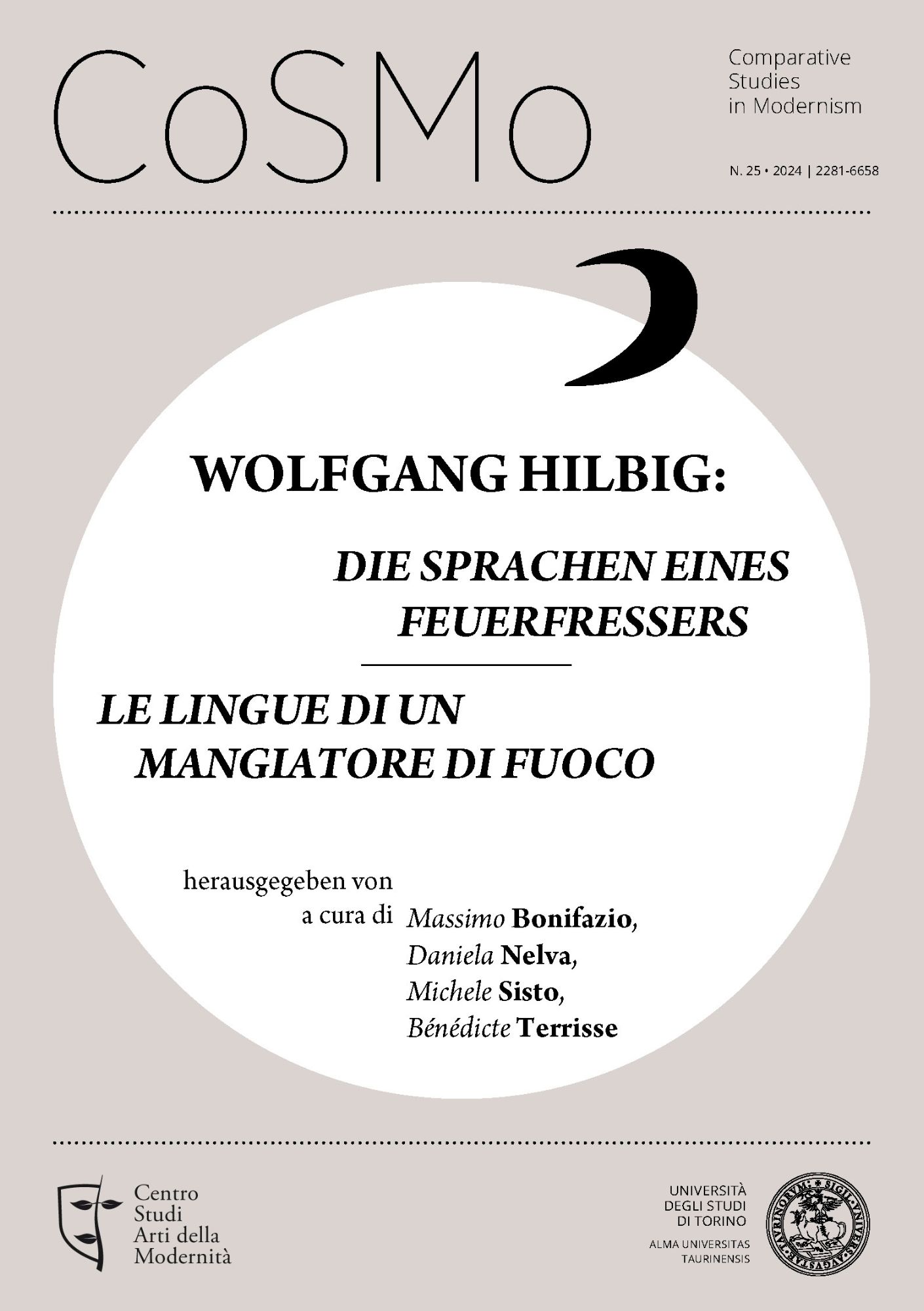Ein verlassener Schreibtisch und der Platz vor dem Kessel
Orte des Schreibens in Wolfgang Hilbigs früher Prosa
DOI:
https://doi.org/10.13135/2281-6658/11474Keywords:
Wolfgang Hilbig, “Der Leser”, “Die Arbeiter. Ein Essai”, “Die Heizer”, “Eine Übertragung”, Self-readingAbstract
In Wolfgang Hilbig’s novels, especially in “Eine Übertragung” and “Ich”, there are many irritating text passages that can be described as drastic in the sense of Dietmar Dath. The essay attempts to describe these passages and to question them with regard to poetological patterns and strategies. In doing so, it becomes apparent that the drastic nature of the novels decisively determines the metaphorical structure of the texts. Hilbig thus makes use of a poetic process typical of him, for which the term “micro-drastics” has been proposed. What is particularly interesting is that this poetic process is based on a form of protest against intolerant, avital social structures and their representatives. This leads to the conclusion that the two novels focused on here can be read as a highly complex didactic of resistance.
Downloads
Downloads
Published
Issue
Section
License
Authors keep the copyrights for their work and give the journal the work’s first publication copyright, which is at the same time licensed under a Creative Commons License – Attribution, which in turn allows other parties to share the work with an acknowledgement of the work's authorship and initial publication in this journal.
Content Licence

You are free to copy, distribute and transmit the work, and to adapt the work. You must attribute the work in the manner specified by the author or licensor (but not in any way that suggests that they endorse you or your use of the work).
Metadata licence

CoSMo published articles metadata are dedicated to the public domain by waiving all publisher's rights to the work worldwide under copyright law, including all related and neighboring rights, to the extent allowed by law.
You can copy, modify, distribute and perform the work, even for commercial purposes, all without asking permission.





